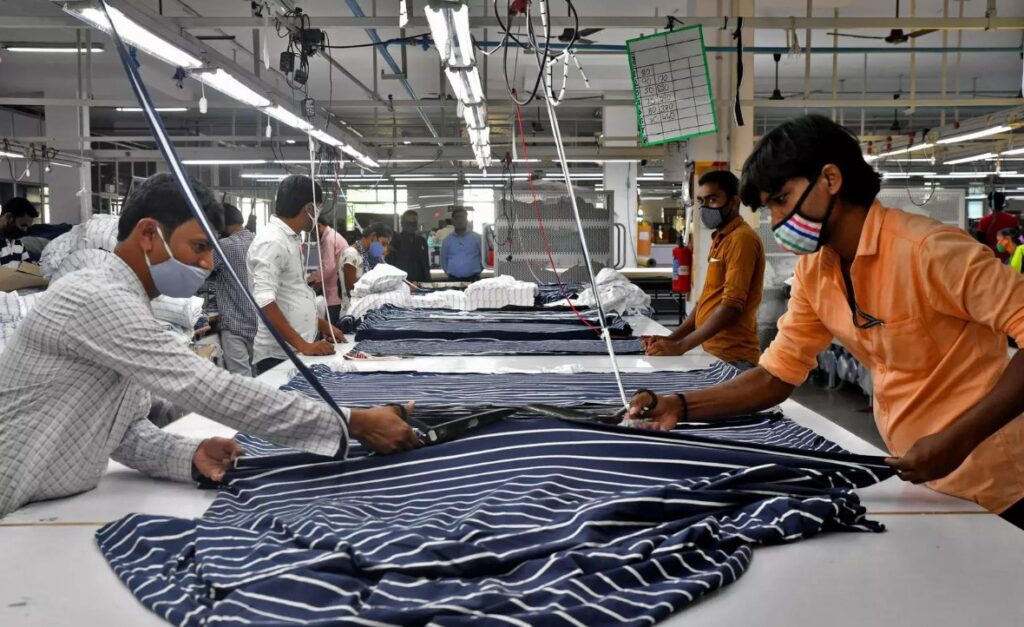India’s textile industry is taking significant strides towards growth and development with the establishment of the Pradhan Mantri Mega Integrated Textile Region and Apparel (PM MITRA) Parks and a strategic roadmap to boost production and exports. Union Textiles Minister Piyush Goyal has been leading the charge, acknowledging the industry’s enthusiasm for the PM MITRA Parks and encouraging collaboration between the central and state governments and industry stakeholders. With a vision of making India a global textile production and export hub, the textile sector is poised for tremendous growth and transformation. Read More Business News on our website.

What is PM MITRA Parks? Boosting the Textile Value Chain
The textile industry plays a crucial role in India’s economy, and to further strengthen its position, the government has initiated the development of PM MITRA Parks. These parks aim to create a conducive ecosystem for textile manufacturing by establishing integrated textile value chains from spinning to garment manufacturing. Chief Minister Bhupendra Patel in Gujarat and Maharashtra Industrial Development Corporation in Maharashtra have signed MoUs for the construction of PM MITRA Parks in Navsari and Amravati, respectively.
The Gujarat park, sprawling over 1141 acres, is set to showcase collaboration between the central and state governments and attract investments. Its integrated approach promises to boost exports and promote innovation, thereby elevating India’s status as a global textile production and export hub. Similarly, the Maharashtra park in Amravati, well-connected to the Mumbai Nagpur Samruddhi Highway, is projected to attract an investment of Rs. 10,000 crore and generate employment opportunities for approximately 300,000 individuals. These initiatives align with the vision of an Aatmanirbhar Bharat (self-reliant India) and underscore India’s determination to dominate the global textile sector.
Strategic Roadmap for Growth
During the Chintan Shivir, a brainstorming event organized by the Ministry of Textiles, Union Minister Piyush Goyal outlined a strategic roadmap to propel India’s textile industry to new heights. The minister emphasized the significance of an integrated approach and urged officials to generate innovative ideas while focusing on reforming the institutional structure to enhance service delivery. The ministry’s press release highlighted the importance of being globally competitive, as it is crucial for India to secure a milestone of $250 billion in textile production and $100 billion in exports by 2030.
The Chintan Shivir provided a platform for officers from all over the country to engage in group brainstorming sessions on five key themes: boosting exports, investment, building size and scale, sustainability, and transitioning from natural to man-made fibers. These sessions resulted in detailed recommendations and solutions to overcome various challenges faced by the textile sector.
